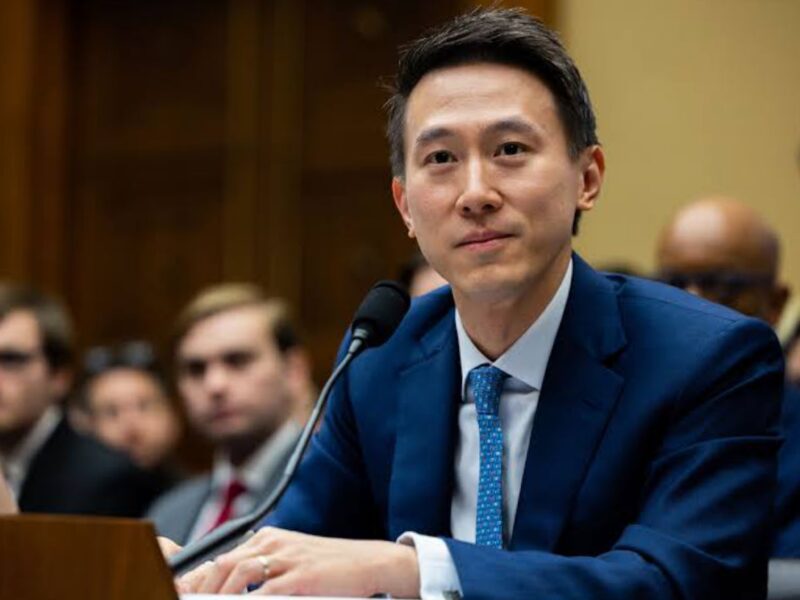Zuckerberg has since been a vocal critic of TikTok, citing national security concerns tied to the app’s Chinese ownership. In 2020, during an internal meeting reported by BuzzFeed News, Zuckerberg acknowledged these concerns, saying, “I certainly think that there are valid national security questions about having an app that has a lot of people’s data that follows the rules of another country.”
Beijing, China – Shou Zi Chew, the CEO of TikTok, once worked as an intern at Facebook under the leadership of Mark Zuckerberg. Today, he stands as one of Zuckerberg’s most formidable competitors, leading a platform that has reshaped the global social media landscape.
Chew, a Singaporean, began his academic journey with an economics degree from University College London, followed by an MBA from Harvard Business School. During his time at Harvard, he interned at Facebook, then an emerging tech company, as revealed in an interview with Harvard’s Business School alumni website.
After his stint at Facebook, Chew’s tech career took him across continents, including London, Singapore, and Hong Kong, before ultimately landing in Beijing. In 2015, he joined the Chinese tech company Xiaomi as chief financial officer (CFO), where he played a pivotal role in taking the company public three years later.
In 2021, Chew joined ByteDance, TikTok’s parent company, as CFO. Later that year, he was appointed TikTok’s CEO, a role that brought him into direct competition with Zuckerberg. Under Chew’s leadership, the app has grown into a social media powerhouse, boasting over 1 billion users globally, including 150 million monthly active users in the U.S.
TikTok’s rise was facilitated in part by ByteDance’s acquisition of the lip-syncing app Musical.ly for $800 million in 2017. Musical.ly was merged with TikTok, creating a platform that quickly gained popularity worldwide. Zuckerberg had reportedly attempted to acquire Musical.ly in 2016 but lost out to ByteDance, according to BuzzFeed News.
In response to TikTok’s success, Meta launched its own competitor, Lasso, in 2018. However, the app failed to gain traction and was shut down in 2020.
Zuckerberg has since been a vocal critic of TikTok, citing national security concerns tied to the app’s Chinese ownership. In 2020, during an internal meeting reported by BuzzFeed News, Zuckerberg acknowledged these concerns, saying, “I certainly think that there are valid national security questions about having an app that has a lot of people’s data that follows the rules of another country.”
Despite criticism and efforts to ban TikTok in the U.S., the platform remains a dominant force, underscoring the stark contrast between Chew’s early days as a Facebook intern and his current position as a leader in the global tech arena.







![JUST IN: Hackers Hijack Apostle Johnson Suleman’s X Account [SEE WHAT THEY POSTED] Hackers Hijack Apostle Johnson Suleman’s X Account [SEE WHAT THEY POSTED]](https://reportafrique.com/wp-content/uploads/2025/03/images-86-260x195.jpeg)


Join our Channel...